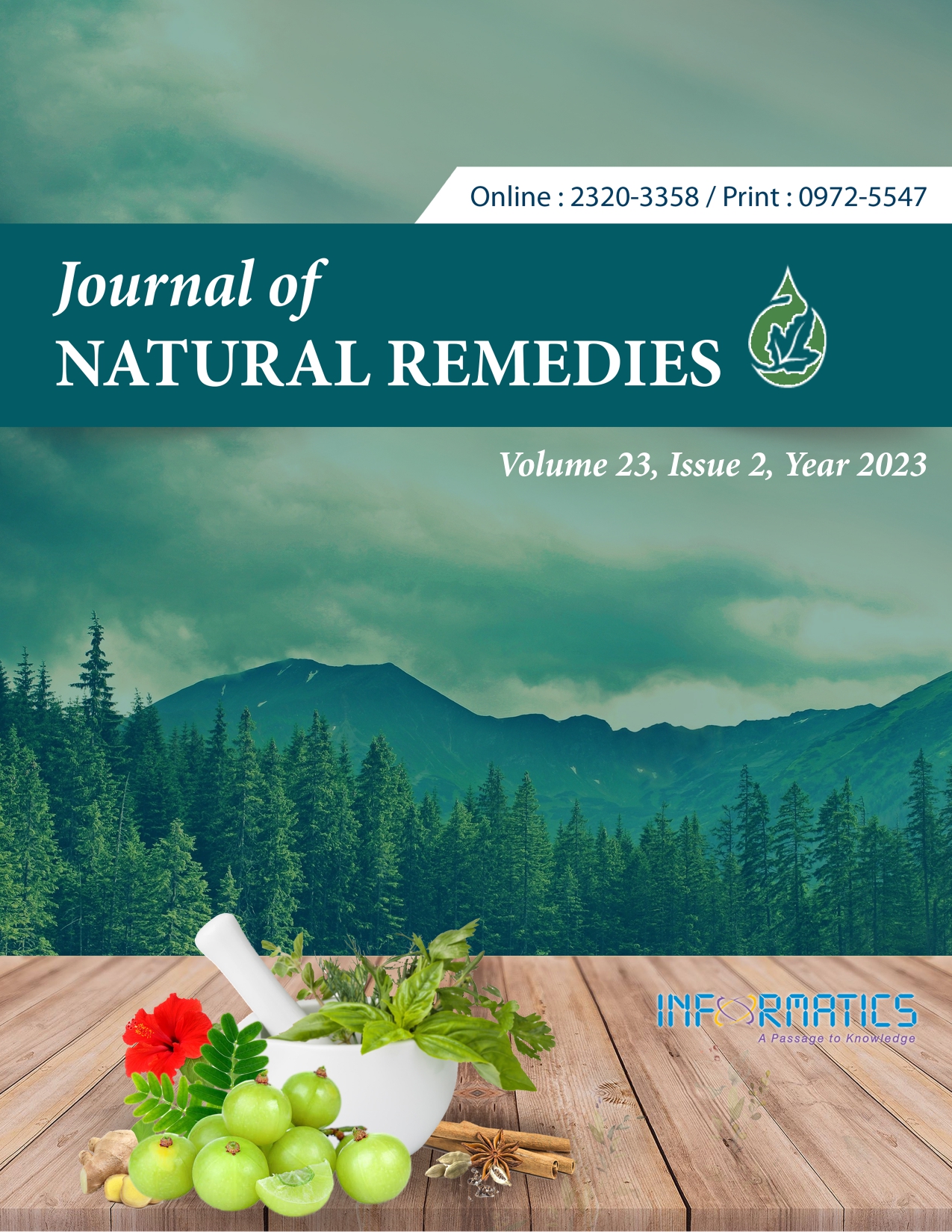Genotoxicity Assessment of Hydroalcoholic Extract of Bark of Terminalia arjuna (Combretaceae)
DOI:
https://doi.org/10.18311/jnr/2023/28309Keywords:
Ames Test, Chromosomal Aberration Test, CHO Cell Lines, Hydroalcoholic Extract, Terminalia arjunaAbstract
The mutagenic potential of Terminalia arjuna hydroalcoholic bark extract was evaluated using Ames test with strains TA98, TA100, TA102, TA1535, and TA1537. The genotoxic potential was assessed by performing Chromosomal Aberration test with cell lines of CHO. In the assessment of mutagenic potential by the Ames test, hydroalcoholic extract of Terminalia arjuna induced a negative response and in Chromosomal Aberration test, it did not show any significant genotoxic activity in the CHO cell lines.
Downloads
Metrics
Downloads
Published
How to Cite
Issue
Section
License
Copyright (c) 2023 Alex Thomas, Ethiraj K.R

This work is licensed under a Creative Commons Attribution 4.0 International License.
Accepted 2023-05-02
Published 2023-06-13
References
Waqar Z, Sajjad UR, Ahsan N, Safdar I, Qurratulain A, Qamar M, Ayesha M, Malik WA. Genotoxicity assessment in aqueous and alcoholic extracts of Allium sativum, Zingiber officinale and Trachyspermum ammi. Curr Trends Biomedical Eng & Biosci. 2019; 18(1). https://doi.org/10.19080/CTBEB.2019.18.555978 DOI: https://doi.org/10.19080/CTBEB.2019.18.555978
Lee WJ, Kim SC, Lee SJ, Lee J, Park JH. Investigating the different mechanisms of genotoxic and nongenotoxic carcinogens by a gene set analysis. PLoS One. 2014; 9(1). https://doi.org/10.1371/journal. pone.0086700 DOI: https://doi.org/10.1371/journal.pone.0086700
Celik, TA. Potential genotoxic and cytotoxic effects of plant extracts, in Bhattacharya A. (Eds.), A compendium of essays on alternative therapy, Croatia: In Tech; 2012.
Mohamed HM, Aly MS. Evaluation of genotoxicity of Euphorbia triaculeata Forssk. extract on mice bone marrow cells in vivo. Toxicol Rep. 2018; 5:625-31. https://doi.org/10.1016/j.toxrep.2018.05.007 DOI: https://doi.org/10.1016/j.toxrep.2018.05.007
Varghese A, Pandita N, Gaud RS. In vitro and in vivo Evaluation of CYP1A Interaction Potential of Terminalia arjuna Bark. Indian J Pharm Sci. 2014; 76(2):138-47.
Ames BN, McCann J, Yamasaki E. Methods for detecting carcinogens and mutagens with the salmonella/ mammalian microsome Mutagenicity Test. Muta Res 1975; 31:347-64. https://doi.org/10.1016/0165-1161(75)90046-1 DOI: https://doi.org/10.1016/0165-1161(75)90046-1
Maron DM, Ames BN. Revised methods for the Salmonella mutagenicity test. Muta Res. 1983; 113:173-215. https://doi.org/10.1016/0165-1161(83)90010-9 DOI: https://doi.org/10.1016/0165-1161(83)90010-9
OECD guideline for the testing of chemicals. In vitro mammalian chromosomal aberration test. No-475 adopted 2016 July 29.
Satwinderjeet K, Kumar S, Kaur P, Chandel M. Study of Antimutagenic potential of phytoconstituents isolated from Terminalia arjuna in the Salmonella/ Microsome Assay. Am J Biomed Sci. 2010; 2(2):164- 77. https://doi.org/10.5099/aj100200164 DOI: https://doi.org/10.5099/aj100200164
Marnewick LJ, Gelderblom CAW, Joubert E. An investigation on the antimutagenic properties of South African teas. Mut Res. 2000; 471:157-66. https://doi.org/10.1016/S1383-5718(00)00128-5 DOI: https://doi.org/10.1016/S1383-5718(00)00128-5
Scassellati-Sforzolini G, Vilalrini LM, Marcarelli LM, Pasquini R, Fatigoni C, Kaur LS. Antigenotoxic properties of Terminalia arjuna bark extracts. J Environ Pathol Toxicol Oncol. 1999; 18(2):119-25.
Ahmad MS, Ahmad S, Gautam B, Arshad M, Afzal M. Terminalia arjuna, a herbal remedy against environmental carcinogenicity: An in vitro and in vivo study. The Egyp Jour of Med Hum Geneti. 2014; 15:61–7. https://doi.org/10.1016/j.ejmhg.2013.10.004 DOI: https://doi.org/10.1016/j.ejmhg.2013.10.004

 Alex Thomas
Alex Thomas









 0.35
0.35 24
24 0.161
0.161